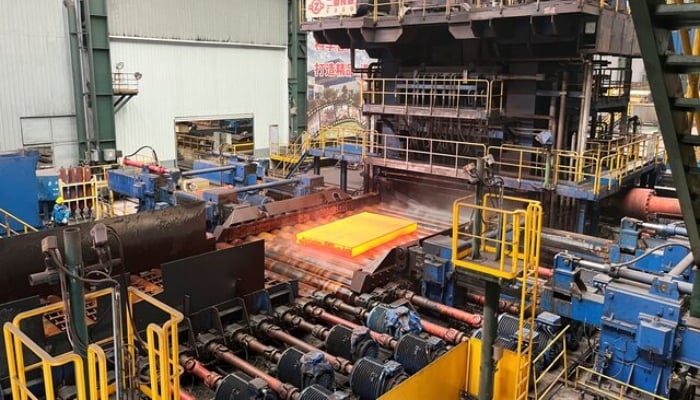From Zeeshan Mirza
KARACHI: In a significant move at bolstering Pakistan’s industrial sector and attracting foreign investment, Pakistan and Russia have reached an agreement to establish a new state-of-the-art steel mill in Karachi.
The development emerged from a high-level meeting held between Special Assistant to the prime minister Haroon Akhtar and Denis Nazaroof, a representative of the Russian government.
The two sides, media reported, have concurred on the formation of a joint working group that will be responsible for driving the project forward. This working group will oversee the crucial aspects of the new steel facility, including its development, technical planning, and investment structure.
Pakistan wants to establish a state-of-the-art steel mill on the existing site of Pakistan Steel Mills (PSM).
If the formal agreement is reached, the new mill will occupy 700 acres of the PSM’s 19,000-acre site, with the land allocated by the government for this purpose, the official said.
Earlier, Pakistan has pulled off a rare “macroeconomic miracle” over the past two years that has drawn the attention of global investors, even as the country faces heightened tensions with India, media reported.
According to the report, inflation has plummeted from a peak of nearly 40% to near zero, while Pakistan’s 2031 Eurobonds have doubled in value, rising from 40 cents on the dollar to 80 cents. The benchmark KSE-100 index has also tripled during this period.
A $7 billion “stabilisation agreement” was reached between the government and the International Monetary Fund (IMF) in September 2023, of which more than $2 billion has already been disbursed. Since joining the IMF in 1950, Pakistan has entered 24 separate bailout programmes.
“Pakistan is a good story,” said Genna Lozovsky, chief investment officer at Sandglass Capital Management, was quoted by Barron’s as saying. “So good it’s not risky enough for us anymore.”
The report further mentioned that the recent military escalation with India, currently under a ceasefire, is unlikely to derail Pakistan’s economic recovery, but the “country’s own shaky underpinnings might”.
Khaled Sellami, an emerging markets sovereign debt manager at Barings, said Pakistan has been known for “boom-and-bust cycles throughout its history.”
Pakistan’s current phase of stabilisation began after it narrowly avoided default in 2022-23. This period was marked by devastating floods, surging oil prices following the Russia-Ukraine conflict, and significant domestic political upheaval.
“Everyone thought Pakistan would default along with Sri Lanka in 2023,” noted Alison Graham, Chief Investment Officer at Voltan Capital Management.
Instead, the State Bank of Pakistan implemented aggressive monetary tightening, hiking interest rates from 10% to 22%.
This pitched the economy into recession but successfully tamed inflation.




